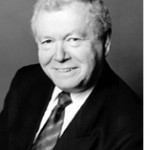By Rabbi Dow Marmur

JERUSALEM– Understandably, readers of my comments about current events in Israel are at times, perhaps often, irritated or worse by the underlying pessimism of my reflections. Hard statistics seem to refute it: for the fifth successive year Israel has retained its eleventh happy place among 156 countries in the ranking of the World Happiness Report. By comparison, Canada is #7 and the United States is #18.
Considering the neighborhood in which we find ourselves, the #11 spot is particularly remarkable: the Palestinian Territory is #104, Lebanon #88, Jordan #90 and, not unexpectedly, Syria #150. If envy could devour, we would have perished long ago.
In my “defense” I’m anxious to point out that it’s not Israel that I’m critical of: I choose to live here and will take every opportunity to tell what a privilege I deem it to be. It’s many of the policies of the current government that alarm me, an alarm that I at times share with you.
I’m among those who believe that, for example, a more liberal stance toward the Arabs in Israel and the Palestinians next-door, as well as toward the asylum seeker who’ve found their way here would make us all even happier; we wouldn’t need the World Happiness Report (and, of course, Prime Minister Netanyahu taking credit for its findings) to tell us what a good country this is.
I also believe that it would be an even better country if the ultra-Orthodox and the ultra-nationalists had less power in the realm. But, together with the majority of Israel’s population, I know that that’s the price we must pay for living in a democracy. All I can do is to join those dismayed at the power of the ultra-Orthodox and the settlers in the current government coalition, and to be saddened by the seeming impotence of the opposition. My comments – now I’m defensive again – should be seen in that context.
Though it may sound pompous, I’d like to think that the stance I seek to articulate is consistent with what I understand Prophetic Judaism to be: the kind of Judaism in which I’ve been reared as a Reform rabbi. It’s very different to the legalistic-halachic Judaism that those whom I perceive as religious extremists and ultra-nationalists seem to be trying to impose on the rest of us.
I’d like to think that my unease and my criticism in no way blind me to the excitement of living in the Jewish state and to enjoying the intensity and vibrancy that imbues even retirees like myself who, by the very nature of things, live close to the margin of society. Perhaps being critical is a function of being powerless, irrelevant and frustrated.
Yet the frustration, the powerlessness and the sense of irrelevance shouldn’t be understood as evidence of unhappiness (which, of course, would be contrary to the above-cited survey). I’m always trying to distinguish between pessimism –not seeing political trends and developments with satisfaction – and hope: the belief that the good that’s in us as a people and as a body of faith will prevail.
Perhaps in the future I should append this page to every reflection on current events as a plea not to be misunderstood. For only when taken together do they reflect my views and the purpose of my comments.
Yes, Israel is #11 on the happiness scale. Only four down from Canada.
*
Rabbi Marmur is spiritual leader emeritus of Holy Blossom Temple in Toronto, Canada. Now living in Israel, he may be contacted via dow.marmur@sdjewishworld.com